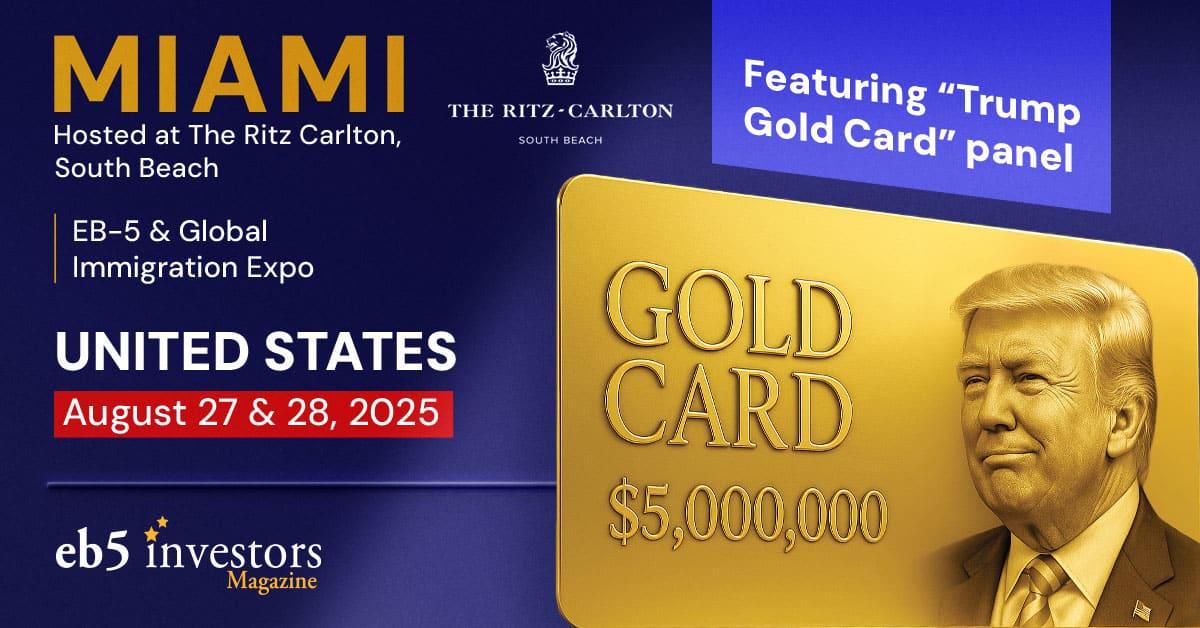
The U.S. Department of State has revised the Foreign Affairs Manual (FAM) to implement stricter rules concerning immigrant visas for anyone who is a member and has been affiliated with a Communist Party or any totalitarian party.
The update has far-reaching implications for potential and new U.S. immigrants, including EB-5 investors.
“Many Chinese and Vietnamese nationals have no meaningful political affiliation yet risk being caught in overly broad interpretations,” said Yiran Cheng of the American Immigrant Investor Alliance (AIIA).
Cheng also said the manual change brings uncertainty to the U.S. immigration landscape, particularly for investors navigating the complex EB-5 process.
“It’s essential that adjudicators exercise discretion and consider the totality of the applicant’s circumstances, particularly when Party membership is nominal or obligatory (…). AIIA encourages greater transparency in how these policies are implemented, and we call for procedural safeguards to prevent blanket denials that would unfairly penalize good-faith investors who pose no national security risk,” he added.
The update expanded the definition of “affiliation” with a Communist or totalitarian party. This broader definition means that individuals may be considered affiliated with these parties based on any ideological support, temporary membership, employment in related institutions, or roles within communist regimes, regardless of the level of involvement or support.
Even without formal membership, immigrants who have worked for the Communist party in their countries may be viewed as affiliated.
What is the potential impact on EB-5 applications?
The new criteria could affect the U.S. immigration processes and EB-5 visa applications.
EB-5 investors should be prepared for increased scrutiny because of this change, said EB-5 attorney Phuong Le from KLDP. Those who have already started the process by filing the I-526 form could face further scrutiny when their applications are reviewed at the I-485 or consulate processing stage.
“They may very well get an [Request for Evidence] RFE at the I-485 stage or additional questions at consulate processing to dive into how involved they were with the party and to see what potential disqualifying activities they did,” Le said. “It’s best for clients to speak with their attorneys now to manage risks and determine if any remedial actions can be taken.”
Filing the I-485 form for adjustment of U.S. immigration status is the second phase of the EB-5 application process. Le does not expect the revision to affect investors at the I-829 stage, which is the removal of conditions for the U.S. permanent resident status and the final phase in the process.
Meanwhile, Alexandra George from The Galati Law Firm anticipates a rise in consular scrutiny, delays, and possible denials under the revision.
“To reduce the risk of inadmissibility findings, EB-5 practitioners will need to screen applicants from certain countries far more rigorously from the outset,” George said. “EB-5 applicants will need to be transparent with their agents and attorneys about their political affiliations, work and military service history, any diplomatic passports, and other ties to the government in their home country from the beginning. This is especially important for applicants from countries where military and/or civil service are mandatory.”
DISCLAIMER: The views expressed in this article are solely the views of the author and do not necessarily represent the views of the publisher, its employees. or its affiliates. The information found on this website is intended to be general information; it is not legal or financial advice. Specific legal or financial advice can only be given by a licensed professional with full knowledge of all the facts and circumstances of your particular situation. You should seek consultation with legal, immigration, and financial experts prior to participating in the EB-5 program Posting a question on this website does not create an attorney-client relationship. All questions you post will be available to the public; do not include confidential information in your question.








